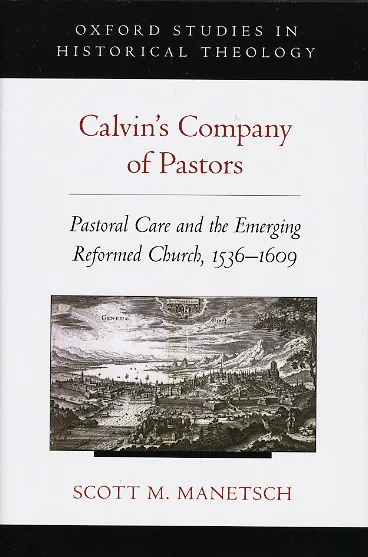CALVIN’S COMPANY OF PASTORS:
Pastoral care and the emerging Reformed
church, 1536–1609
By Scott M Manetsch
Oxford University Press. 448 pages. £47.99
ISBN 978 0 199 938 575
Plus ça change, plus c’est la même chose (The more things change, the more they stay the same).
Most pastors know this is true of life in general, and yet we often don’t believe it’s true of the particular point and time in which we live and minister. We fall prey to thinking that the challenges and demands of our particular context represent a unique challenge to gospel work, or require radical innovations to train the next generation of leaders and reach the lost.



